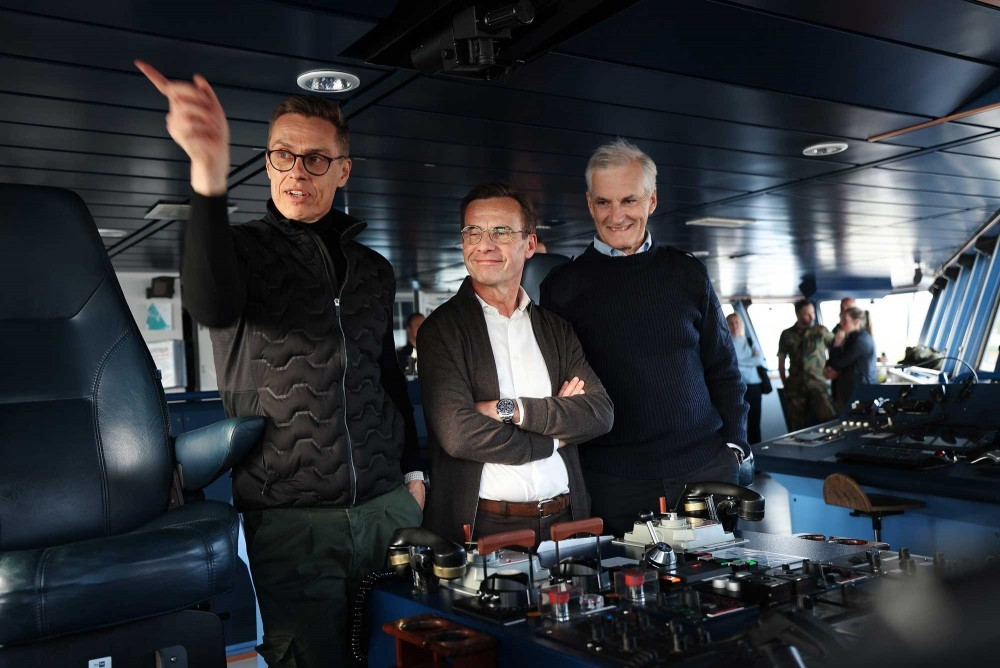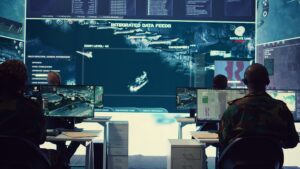The government of Finland remains uncertain about the causes of recent repeated damages to undersea cables in the Baltic Sea, the Finnish President Alexander Stubb told Bloomberg television at the World Economic Forum’s annual meeting in Davos, Switzerland.
“The investigations are still ongoing, so we can’t really take a stand on that. There are couple of options: one is the sabotage, the second is the mistake and the third option is incompetence.”
“The bottom line is it doesn’t really matter who does it,” Stubb said on Wednesday. “The most important thing is that we are able to prevent it, and if we’re not able to prevent it, that we can actually correct it very quickly.”
Speaking on Bloomberg television the president emphasized that the government cannot prevent every case, but it is now controlling better the so-called shadow fleet.
“The big problem we have now is that they’re basically transporting this sanctioned oil on ships that are not good-they’re old, they’re decrepit,” Stubb said. That’s increasing the risk of an environmental catastrophe, he said.
At the same time, he added that “its not of the interest of Russia or anyone else to have an environmental catastrophe.”
Stubb’s comments come after Mark Rutte, NATO secretary general, co-hosted a summit of Baltic Sea allies on Tuesday, January 14, 2025, along with the Finnish president and Estonia’s prime minister Kristen Michal.
NATO is launching ‘Baltic Sentry’ to enhance its military presence in the Baltic Sea and improve its allies’ ability to respond to destabilizing acts.
The so-called Baltic Sentry program, a new military activity by NATO to strengthen the protection of critical infrastructure, was announced at a meeting in Helsinki by the NATO secretary general, Mark Rutte.
‘Baltic Sentry’ will involve a range of assets, including frigates and maritime patrol aircraft.
The secretary general also announced the deployment of new technologies, including a small fleet of naval drones, and highlighted that NATO will work with allies to integrate national surveillance assets – all to improve the ability to protect critical undersea infrastructure and respond if required.
Stubb made also comments to Bloomberg about the new Donald Trump administration and peace prospects in Ukraine.
“We all understand that Trump has changed US foreign policy and it’s more transactional and we deal with that,” Stubb declared.
The president said that Finland produces 60 percent of the world’s icebreakers and the alliance needs 70-90 icebreakers, asking “is there a deal to be made there?”.
Regarding Ukraine, Stubb said he believes that Trump wants to make peace. “He did it in the Middle East, and he wants the same in Ukraine.” At the same time the US wants to retain its position as a superpower. “If you want to be a superpower you need to have allies and the closest allies they come from Europe.”
As far as NATO allies’ spending on defence, he said, “Trump was right originally when he said that Europeans are not taking care of their defence enough, he was right in saying that we aren’t using enough for our defence expenditure.”
He highlighted that this does not apply to Finland, where defence spending “is up at 2.4-2.5 percent.” “We have one of the largest militaries in Europe, and we actually buy American military material.”
“The fact that he’s pushing us to do more on our own I think is a good thing. So, what I say is listen to what Trump has to say and act accordingly. A country like Finland will certainly do that,” he concluded.



